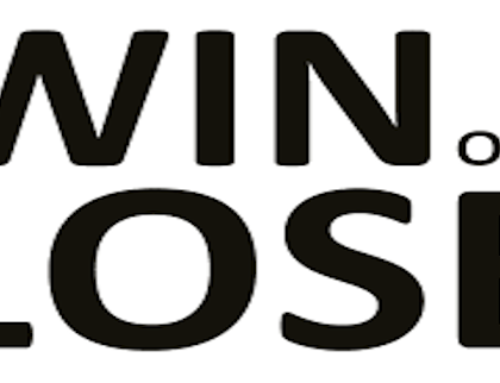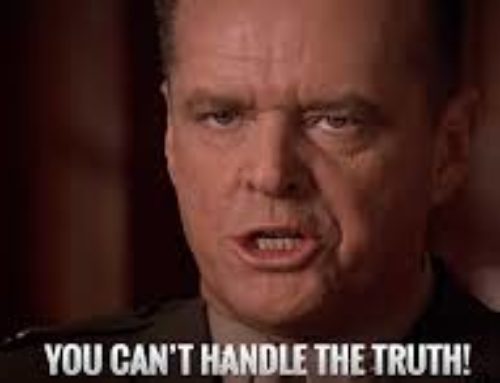One of the questions I get asked most often is “what is a CRO, or Chief Revenue Officer?”
In the tech and startup world, job titles tend to go in and out of fashion fairly quickly, so it’s okay if you’ve never heard the title or acronym before. But if I had to bet on it, I would say that the CRO — Chief Revenue Officer — title seems to be here to stay, so it’s probably worth explaining more about the job in detail.
To delve into the CRO role, I recently spoke with Eric Rosenthal, Chief Revenue Officer of Emissary, a SaaS startup in New York.
This interview has been transcribed from a recent podcast episode. If you would like to listen to the full audio, check out the full interview with Eric Rosenthal at Best Selling Podcast or just use the media player below.
Vince Beese: I wanted to start off with this topic of the Chief Revenue Officer, or CRO. It’s a relatively new title — I think it’s probably been in effect for about the last 10 years or so. I see a lot of things about the title here, a lot of things about the title. People have a lot of perceptions. But let’s start off with how do you think this title came about and what do you think the biggest differences are between a vice-president of sales and a CRO?
Eric Rosenthal: Absolutely. I think it’s a very good and relevant question. So I’ve had the opportunity to be VP of Sales as well as CRO in multiple jobs and I think that the difference comes down to alignment. As VP of Sales, I ran a sales organization or a sales team or teams. As CRO there’s more responsibility from a day-to-day level and from a strategic level. And I need to align teams. I need to align my marketing team, my sales team, and my account management our customer success team. So they’re going in the direction that I want them to go in versus a situation where there’s a Head of Marketing and Head of Sales a Head of Customer Success and they’re not aligned.
So if I have to say one of the main reasons that we’re now seeing CROs at companies the size of the Emissary, which is a 35 employee company, versus some of the larger technology companies out there, I think it revolves around alignment, Vince.
Vince Beese: So is it just for startups or do you think that the title could be just as successful at a larger corporation or larger enterprise?
Eric Rosenthal: I’ve typically been at startups. So my I’m biased in my answer. I think it’s more more relevant at startups. Once again, that’s my personal opinion. The fact that you do have fewer leaders, the fact that you need to have — back to my word, alignment — and the fact that you are managing multiple teams.
I think if you’re the CRO of a Fortune 100 tech company that is a massive job to align Customer Success, Marketing and Sales. Not saying it can’t be done, but I think it’s critical from a directional standpoint at a startup.
Vince Beese: Yeah. Well, it is interesting — IBM, Red Hat, large corporations — all have CMOs, right? So. My opinion is why not? Someday they’ll have a Chief Revenue Officer as well. They’ll probably call it different things. But anyway..
Eric Rosenthal: I was going to say, sometimes you hear the term Chief Sales Officer, right? Could be a Chief Marketing Officer.
Vince Beese: Absolutely. So in your opinion, what do you think rolls up to the Chief Revenue Officer, meaning, which departments do you think make the most logical sense?
Eric Rosenthal: Sure. So in my experience as a Chief Revenue Officer, I’ve typically had Sales, Marketing, Customer Success or Account Management —whatever term the company was using — and some type of Sales Ops, Revenue Ops… somewhere where there’s data and analytics that is almost my right-hand source of information to help me make decisions.
Vince Beese: Yeah, that’s a lot. What doesn’t report up to the Chief Revenue Officer?
Eric Rosenthal: Yeah, right good question. So you’ve got very important departments like product, and operations, engineering, and then finance. That typically does not roll off.
Vince Beese: So it sounds like in your opinion. It’s all the client facing personnel.
Eric Rosenthal: Yeah, I would say when someone asks what a Chief Revenue Officer does I typically say I run the business side of the company. Anything that interacts with dollars or customers, I have a hand in it.
Vince Beese: If you had to say the key characteristics for this Chief Revenue Officer, would you say this person is more operational or more sales?
Eric Rosenthal: That’s a great question because I always describe myself as an operationally minded sales leader. Not to kind of cheat on the question. But I think you need to be strategic, right? You’ve got to be able to multitask and be strategic. So, you know, I’m not trying to avoid the answer but I think it’s a bit of both.
At the core it’s got to be sales. Right? You’ve got to be sales driven because it’s it’s a numbers game and Chief Revenue Officer is successful when he or she is hitting their numbers.
Vince Beese: Yeah, I’m as biased as you are. I think outside of the founder, co-founders at a startup, and CEO, I think the CRO is the most important, critical, person at that company right? At the end of the day, they’re relying on you to drive the strategy, to drive the go-to-market execution, right? To accomplish things. And you have to make the tough calls right along the line.
Eric Rosenthal: I one hundred percent agree that there’s a lot of ownership. There’s a lot of decisions, and the CRO impacts decisions that product engineering and other teams make so there’s a lot of leadership that comes from a CRO role.
Vince Beese: And it’s means that it’s a high-risk high-reward. I think I read something not too long ago that the average tenure at a SaaS company for a CMO is about what, 18 months or so? What do you think the average tenure is for a CRO these days?
Eric Rosenthal: Well, I’d like to think that whatever it is, I can last longer than the average, right Vince?
Vince Beese: Yeah.
Eric Rosenthal: That’s a fair point that you see a lot of turnover. But I I think a lot of times assuming that the company is running successfully, you see turnover when the CRO is more of a VP of Sales-minded individual and he or she can’t make that leap to a more strategic minded, “I’ve got to wear multiple hats and make sure I’m treating all facets of my organization fairly and equally.”
Vince Beese: So you’ve got a lot of things different things you’re juggling. You just mentioned sales, marketing, ops, client success, or renewals and such. How do you juggle all these things? How do you prioritize your day?
Eric Rosenthal: You know, it’s interesting when my kids ask me what do I do all day, I say I talk to people, because that’s what I do. I talk with the different teams and help them with decisions they need to make, answer questions.
I think — and I don’t want to sound too biased here — at the end of the day, I’m probably prioritizing sales first, especially as a start-up. Or I should say, I’m prioritizing customers and sales first. As a start-up you want to make sure you’re fully addressing that.
I don’t want to say marketing has the short end of the stick but I fortunately have a very strong marketing leader. I can rely on him to take care of a lot. That takes things off my plate. But one key to a good CRO is hiring well, because the better you hire the more you can sit back and be strategic versus having to be as day-to-day and tactical as I am today. But that’s part of my job and that’s what I enjoy doing.
Vince Beese: Yeah, you have to, otherwise you’re gonna suck at it.
I’ve got some theories as to why this title was created. My first theory is that someone that was a vice president of sales or SVP of Sales says, “you know what, I want a C-suite role.” That’s one theory. Very simple. And some SaaS company said, “you know what, we need this superstar. Let’s give them the title, who cares?”
But I think the real reason really why this is kind of morphed into the Chief Revenue Officer for all the reasons you’ve been talking about is that I think it came to when everyone said you know what we need sales and marketing to be completely aligned. And we need marketing to think more like sales and sales to think more like marketing and we need marketing to really own a number just like sales owns a number.
So at the end of the day, you need somebody to own both those departments to make it really aligned. Otherwise, you’re still going to have these silos right?
So my theory is that it started because we really truly wanted alignment between sales and marketing. What do you think about that theory?
Eric Rosenthal: I’m nodding my head as you’re saying everything you’re saying. I think I think that is the key, to go back to my earlier comment. I do think the role is created around alignment. I’ve been in many organizations where sales and marketing were separate silos and we could have hit our objectives, but our goals were different, and that doesn’t mean it was in the best interest of the company. So I think you hit it spot-on, Vince.
Vince Beese: Yeah and I think — I don’t know your current head of marketing, but I’m quite sure that person is very capable. But having it report under you, again, you own the strategy. You own the goals, right? You own the compensation plans. You can align all those things right?
I mean, you know you’re used to seeing with marketing that they were aligned to metrics that weren’t important to salespeople. I guarantee you that at Emissary all your goals are probably aligned.
Eric Rosenthal: Yeah, that’s a very interesting point because that’s something our head of Marketing and I chat about often. It’s imperative to me that he’s measured on goals that impact the entire company, not just marketing. And if that wasn’t under my domain that might not be the case. But to your point, you know, I can set his goals, my customer success team goals, sales goals.
And what also is very important, just to kind of jump around a bit, as a CRO it’s my responsibility to make sure sales is bringing in the right deal. If I wasn’t aligned with customer success, I’m not saying I personally, but other sales leaders might not care as much whether a deal is good or bad or not. At the end of the day when deal comes in I own it because my customer success team has to manage it. So does not behoove me to bring in any deal I can. I want to bring in the right deals for the company.
Vince Beese: That’s right. It’s good point. It’s just like marketing, right? If they’re if they’re sending crappy leads to sales you own it at the end of the day as well. So you’re responsible for that. So..
Eric Rosenthal: 100%.
Vince Beese: Well great. I think this is a good conversation about the CRO will hopefully people will appreciate that and get a better understanding of really what it is, and the importance of it. And that I think that it’s not an inflated title. It’s a real thing. And I think we’ll continue to see the trend of CRO or Chief Sales Officer gain that type of leadership within the C-suite.
Eric Rosenthal: Absolutely.






Leave A Comment